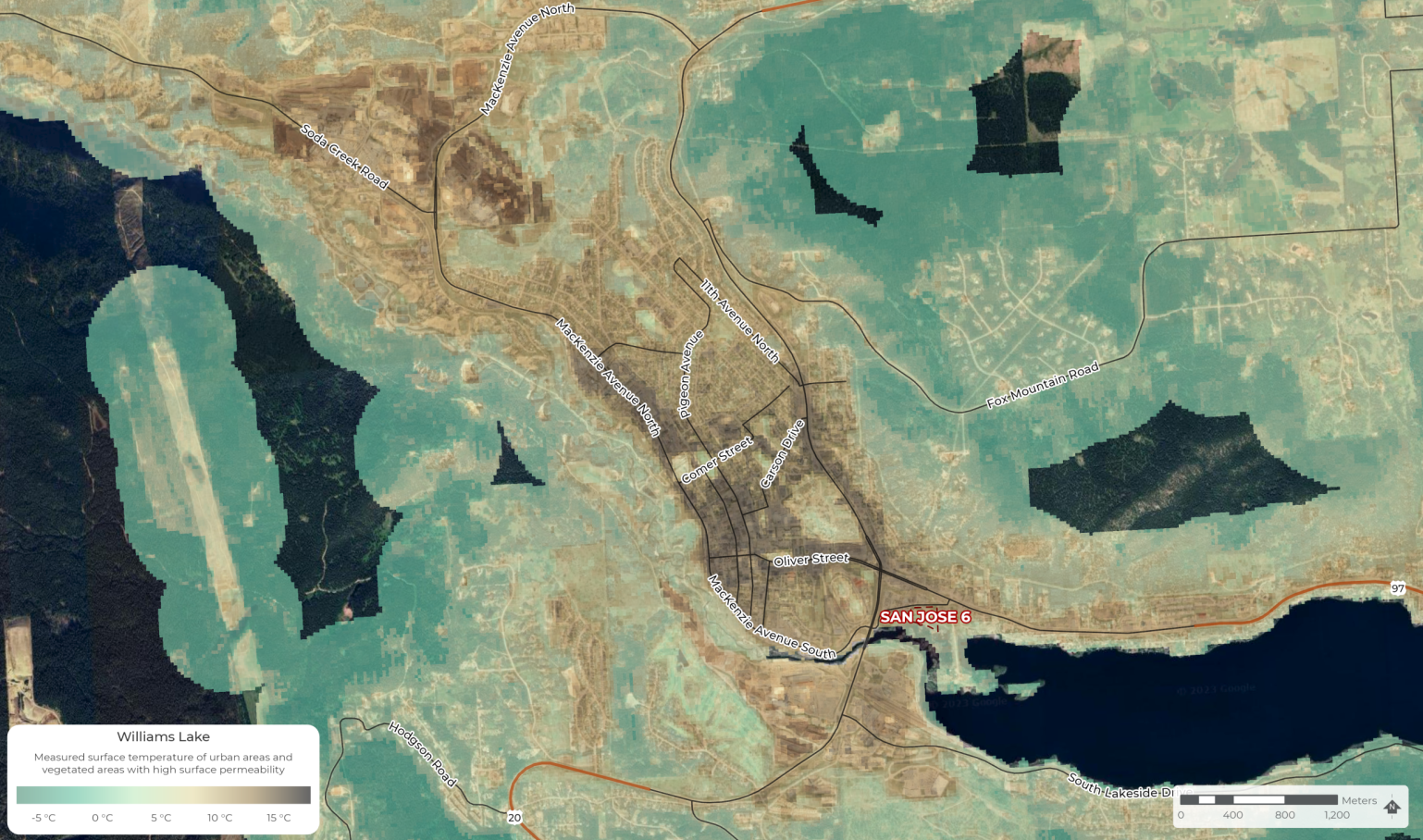
City of Williams Lake - 2022-2023
Heat Alert Response Plan
Heat Alert Response Plan
A rapidly changing climate is resulting in more frequent and intense heat events in BC and the Cariboo region, elevating the risk of heat-related illness and death. In developing the City of Williams Lake’s first Heat Alert Response Plan, Urban Matters took into consideration the limited capacity of rural municipalities by creating a unique approach that leverages community groups and their established access to heat-vulnerable populations. This involved conducting engagement sessions to form a full picture of needs based on localized knowledge, supported by climate and health data from relevant authorities and established best practices for heat response.
Impact
The Heat Alert Response Plan established a customized Heat Alert Response System (HARS) that will be triggered by incoming heat warnings for the region, deploying a process to notify residents and heat-vulnerable groups by leveraging community partners to get the word out. This Extreme Heat Response Committee is unique in that it not only operates as an emergency response system but prioritizes connection-building to strengthen local capacity to heat events at the level of prevention and even adaptation.
A rapidly changing climate is resulting in more frequent and intense heat events in BC and the Cariboo region, elevating the risk of heat-related illness and death. In developing the City of Williams Lake’s first Heat Alert Response Plan, Urban Matters took into consideration the limited capacity of rural municipalities by creating a unique approach that leverages community groups and their established access to heat-vulnerable populations. This involved conducting engagement sessions to form a full picture of needs based on localized knowledge, supported by climate and health data from relevant authorities and established best practices for heat response.
Impact
The Heat Alert Response Plan established a customized Heat Alert Response System (HARS) that will be triggered by incoming heat warnings for the region, deploying a process to notify residents and heat-vulnerable groups by leveraging community partners to get the word out. This Extreme Heat Response Committee is unique in that it not only operates as an emergency response system but prioritizes connection-building to strengthen local capacity to heat events at the level of prevention and even adaptation.



